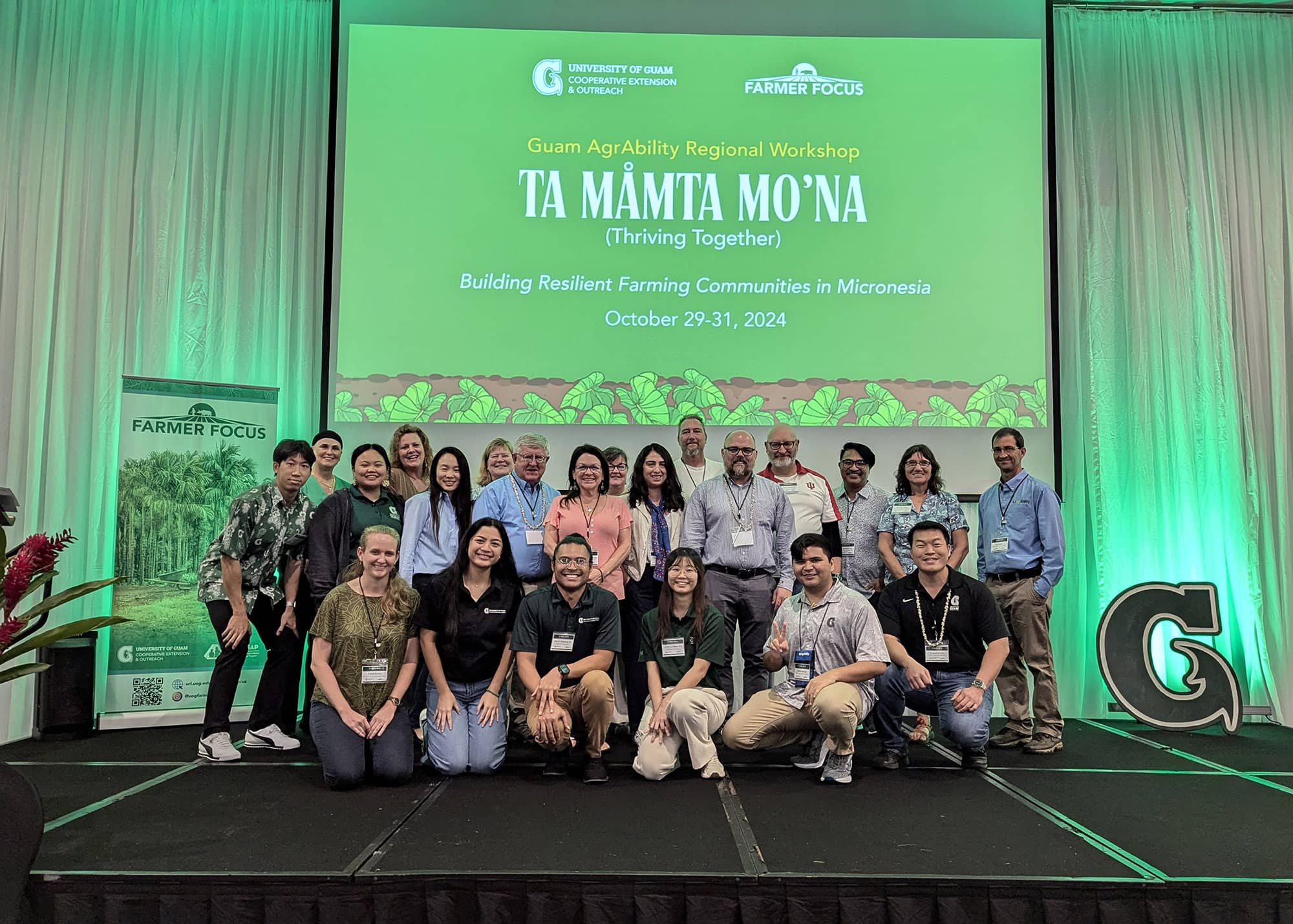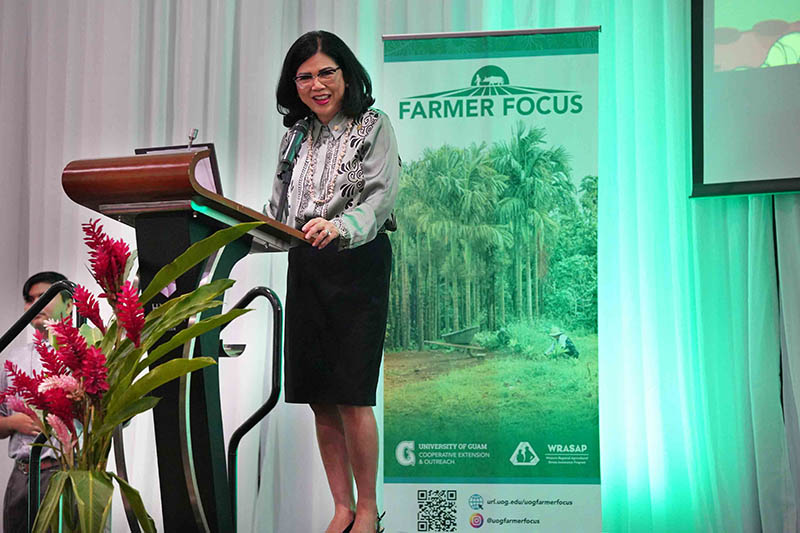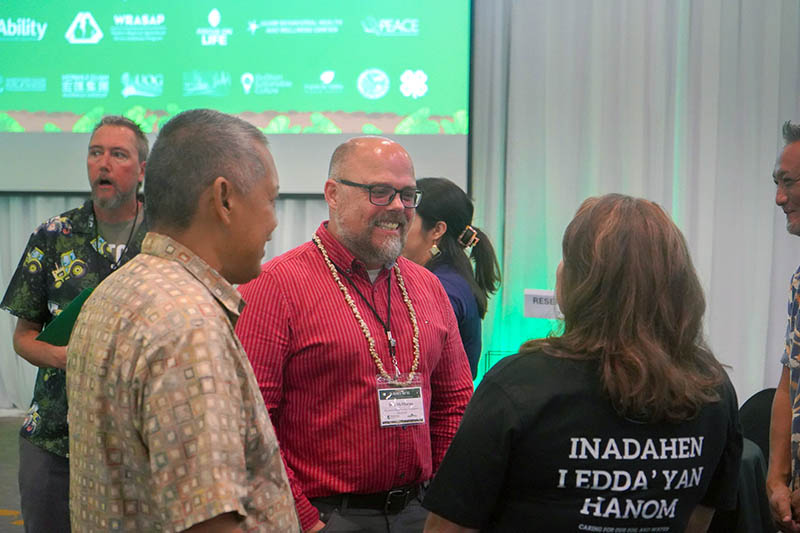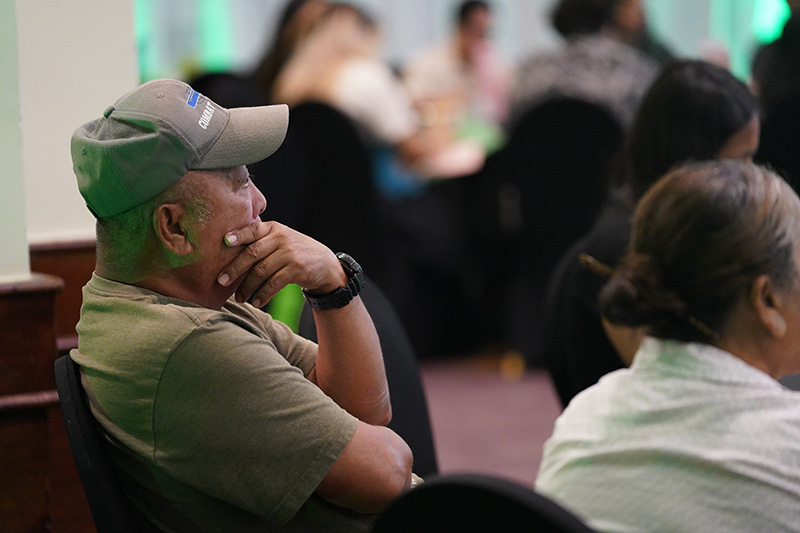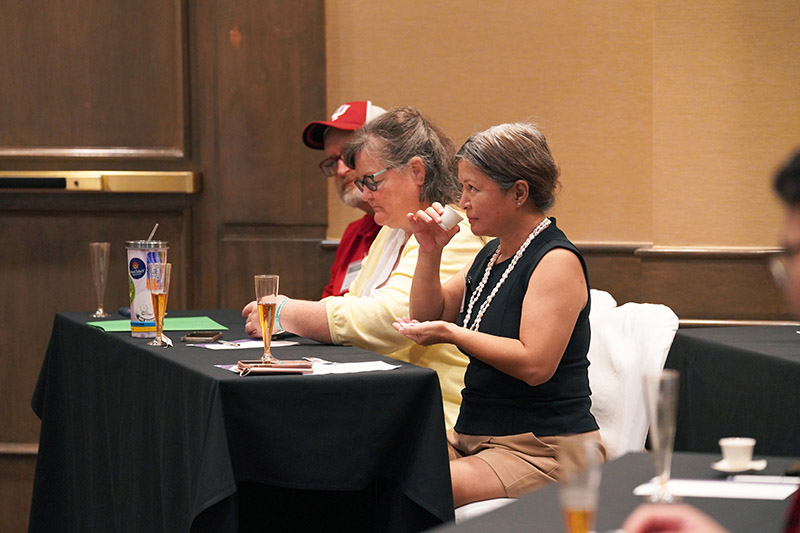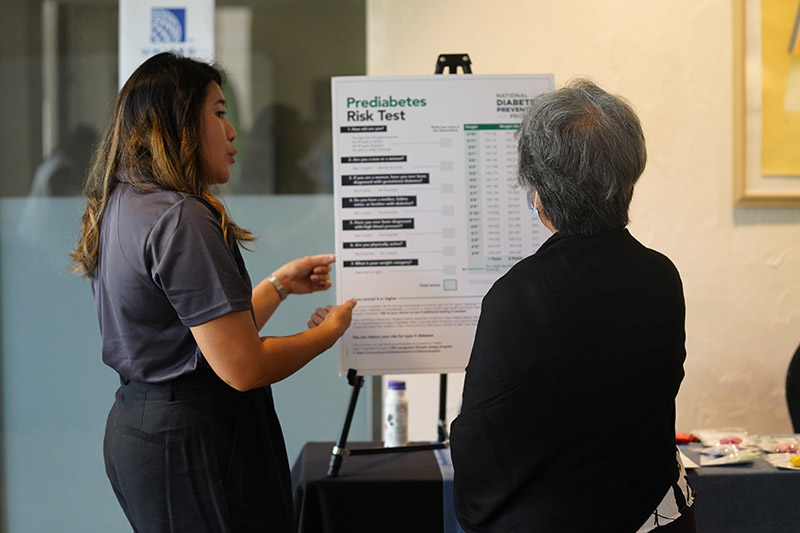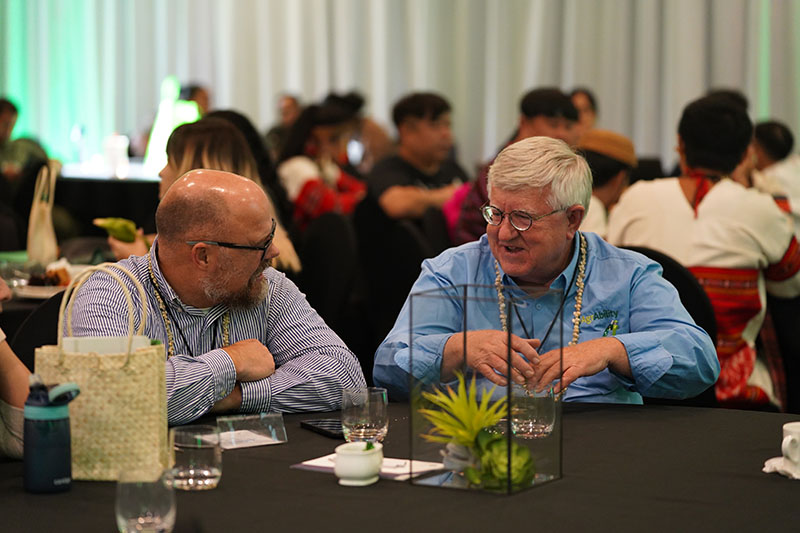Guam’s first AgrAbility conference focuses on solutions to limitations and disabilities in farming
Guam’s first AgrAbility conference focuses on solutions to limitations and disabilities in farming
Guam’s first AgrAbility conference focuses on solutions to limitations and disabilities in farming
11/5/2024
By Jackie Hanson
Farmer Focus, a University of Guam initiative working to enhance mental health support for the agricultural community, expanded the conversation on farmer support last week to include disabilities and limitations. From Oct. 29–31 at the Hyatt Regency Guam, the UOG Farmer Focus team hosted the island’s first AgrAbility Regional Workshop, drawing an audience of 185, including local farmers, professionals who work directly with agricultural producers, and community leaders.
The National AgrAbility Project — a USDA-funded initiative based at Purdue University (Ind.) with programs in 21 states — helps farmers, ranchers, and agricultural workers overcome limitations and disabilities affecting their ability to carry out their work. Bill Field, the project’s director, was on island for the Guam workshop.
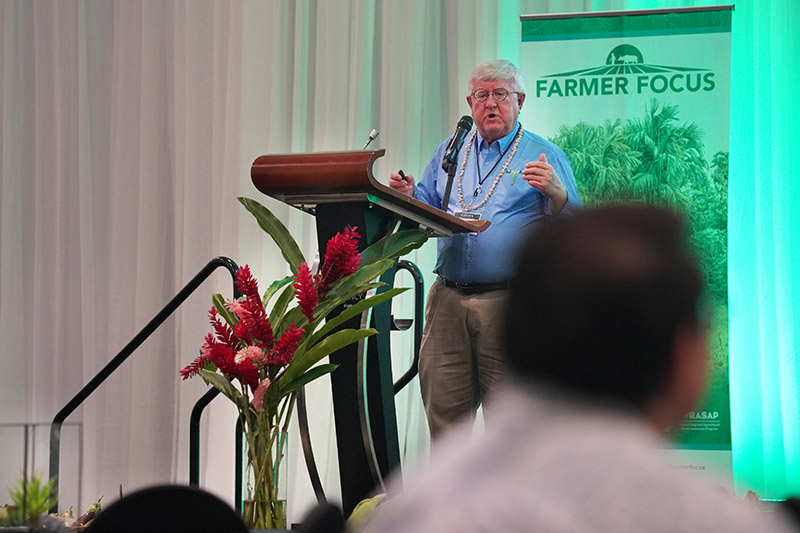 “We’ve done two [stateside] studies under the AgrAbility umbrella,” Field said, “and
almost one out of five farmers identified something in their lives they couldn’t do
— it could be [because of] chronic issues or could be aging issues.”
“We’ve done two [stateside] studies under the AgrAbility umbrella,” Field said, “and
almost one out of five farmers identified something in their lives they couldn’t do
— it could be [because of] chronic issues or could be aging issues.”
The programs and services under AgrAbility address limitations ranging from arthritis to visual and hearing impairments to loss of limbs and assist them with tools and services that can help them continue their livelihoods. In the program’s 33 years, Field has witnessed numerous solutions that have kept farmers working, including installing lifts to get farmers on their tractors.
“I’ve watched guys who’ve had spinal cord injuries or lost their legs [while serving in the military], and you get them back in a tractor — it really changes their personality, like, ‘If I can do this, I can do other things,’” Field said.
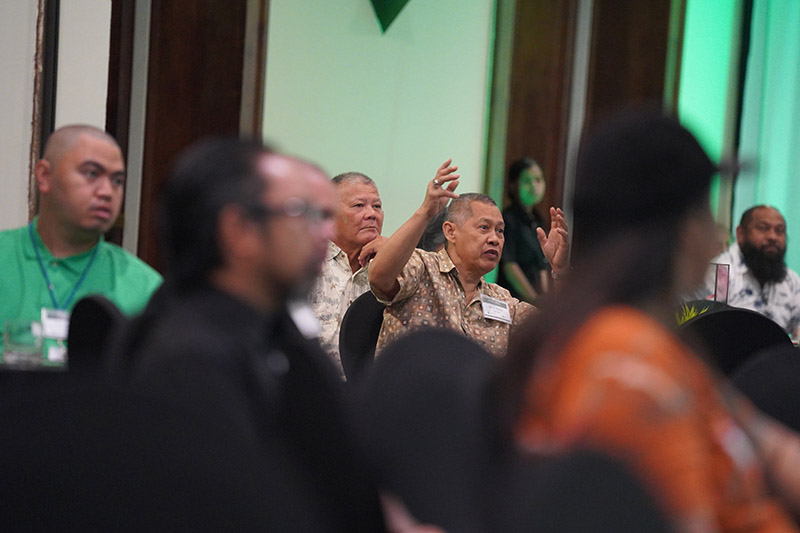 Assistive aids and technologies
Assistive aids and technologies
Presenters at the conference included assistive technology and behavioral health experts from universities in 10 states and from several partner universities in Taiwan, as well as from Guam’s Department of Behavioral Health & Wellness Center and local nonprofits. Individual workshop sessions highlighted assistive technologies for farming with a disability and how to conduct assistive technology assessments on farms, how to recognize and respond to behavioral distress, support programs for caregivers, and how to overcome barriers in succession planning and explore agritourism opportunities.
“Issues such as aging, injuries, and chronic conditions like arthritis or back problems are common among farmers in Guam,” said Dr. Kuan-Ju Chen, associate professor of agricultural economics with UOG Cooperative Extension & Outreach and project director of Farmer Focus along with extension agent Dr. Tim de La Cruz. “These obstacles can reduce productivity, increase safety risks, and compound the stress of farming in Guam’s already challenging environment. This conference is an important start to the conversations and networking that will lead toward more solutions.”
In one session, agricultural engineer and assistive technology professional Ned Stoller from the National AgrAbility Project, demonstrated 15 simple assistive devices, such as a padded kneeler with handle bars, shovel adapters, and ergonomic hand tools, that he made from materials that were either repurposed or purchased on island. AgrAbility has a “toolbox” at AgrAbility.org of nearly 2,000 adaptive aids that can be purchased or made.
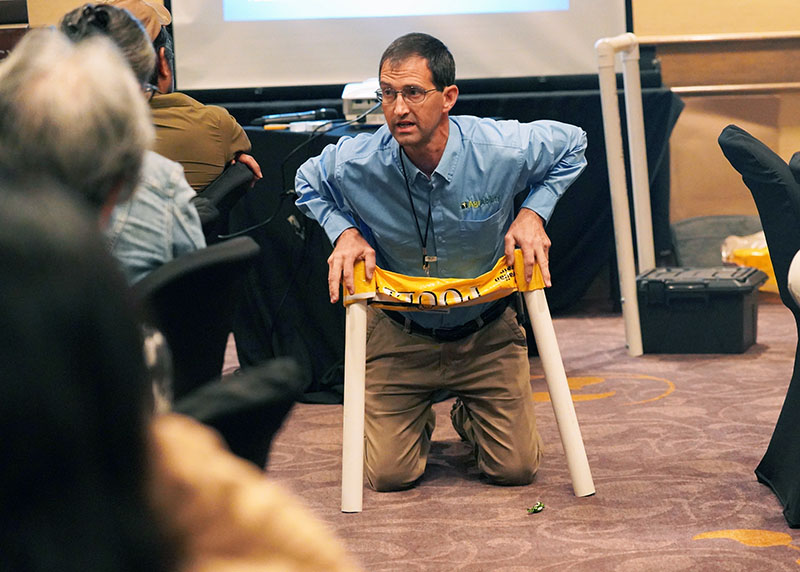
“It gave me more ideas as to what you can use and how you can make [adaptive aids] — and it can be done,” said Florence Cornwell, a workshop attendee who gardens several types of fruit. “It’s amazing all the different things he made.”
29 new certifications in Mental Health First Aid
The AgrAbility workshop was preceded by an all-day Mental Health First Aid training, in which 15 social service and agricultural assistance professionals and 14 veterans were certified. They learned about common mental health disorders and substance use disorders, risk factors and warning signs, crisis and suicide intervention skills, and self-care and referral resources.
In her opening remarks, UOG President Anita Borja Enriquez welcomed the guests and dignitaries, including Governor of Guam Lourdes Leon Guerrero and Guam Congressman James Moylan. She highlighted how the event underscores UOG’s commitment to diversity, equity, and inclusion and the traditional CHamoru values of inadahi yan inagofli'e — to look out and take care of each other.
“What I love about today’s inaugural event — I know when you walk away, you will be enriched with additional resources in terms of knowledge, new partners, and other capabilities that you can bring toward supporting the end result — AgrAbility,” Enriquez said.
'We’re talking about it more and doing something about it'
Since its launch in 2021, the Farmer Focus Project has carried out regional farmer and farm worker stress surveys as well as Farmer Focus Conferences in Guam in 2022, in Pohnpei in 2023, and in Yap earlier this year with plans to hold conferences on every major Micronesian island.
“It’s not a natural component to talk about mental health and physical health — in terms of physical disabilities — when you’re talking about the farmer. Because the job itself can be so taxing, [personal needs] become lower priority because you’re constantly taking care of the land,” said KristiAnna S. Whitman, project director for Guam Focus on Life at the Guam Behavioral Health & Wellness Center, which has been a key sponsor in Farmer Focus events from the beginning. “I think the positive thing is that we’re talking about it more and doing something about it.”
The Farmer Focus Project at UOG is a sub-grantee of the USDA-funded Western Region Agricultural Stress Assistance Program (WRASAP) at Washington State University. The Guam AgrAbility Regional Workshop was also made possible by sponsorships from the Guam Behavioral Health & Wellness Center, the J. Yang & Family Foundation, Honhui Group, and the Northern Guam Soil & Water Conservation District.
